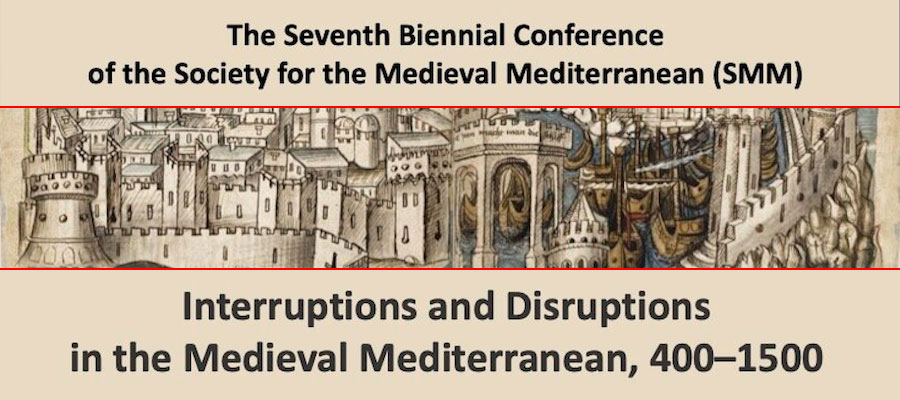Travelling in the Eastern Mediterranean, ca. 1300–1500: Politics, Agency and Production of Historical Knowledge and Space, sessions at the Seventh Biennial Conference Society for the Medieval Mediterranean, University of Crete, Rethymnon, July 11–15, 2022
Since the 11th century remarkable people flows, from Latin, Byzantine, Jewish and Muslim cultural circles, continuously shaped and reshaped the political, social, and cultural landscape of the eastern Mediterranean. Their travels, for political, military, economic, religious, or intellectual purposes, established contacts but also produced knowledge about both the travelers and the visited people and places, thus contributing to the negotiation of identities and alterities. The panel sessions will focus on the period ca. 1300 to ca. 1500 which witnessed both the continuity of the contacts between the aforementioned worlds, as well as important changes, such as the Mamluk and the Ottoman expansion and the Renaissance movement, which caused interruptions and disruptions in cultural encounters in the eastern Mediterranean.
Our interest is in the production of historical knowledge and space through the interaction of politics and agency. The focus will be mainly on narrative texts which record the experience of travel (in the broader sense, including pilgrimage, trade, crusading, etc.) and relate the encounters with the Other in foreign places, while also illuminating the travelers’ perception of the past. We are also interested in investigating how the travelers documented and disseminated their experiences and how they tried to shape the mental horizons of the groups to which they belonged.
We welcome case studies dealing with the Latin, Byzantine, Muslim and Jewish worlds. Contributions can range from historiography, literature, works of art etc. Interdisciplinary approaches will be highly appreciated. Through such case studies, the session would like to discuss broader questions, such as:
- How did medieval people shape themselves as travelers and authors? How did they define their travel experiences and perceive the act of their narration?
- Were there any politics of producing space among the Latin, Byzantine and Muslim political entities?
- Did interactions between different localities lead to the shaping of a “global” eastern Mediterranean and, if so, how were various local spaces integrated into the latter?
- How did the processes of historical knowledge and space production affect the formulation of normative concepts such as “Europe”, “West”, “East” and “Greece”?
- What is the value of the aforementioned spatial concepts as analytical categories for the study of the late medieval period? In this vein, the discussion of modern analytical concepts, such as “global middle ages” and “proto-orientalism” are strongly encouraged.
- How were historical discourses (selection of events, vocabulary, interpretive schemes, rhetorical conventions) shaped in this period?
It is our intention to publish contributions to the panel sessions, either as a self-standing volume or in the context of an appropriate journal.
Session organizers
Eleni Tounta, Aristotle University of Thessaloniki
Nikolaos G. Chrissis, Democritus University of Thrace
